Investors should consider ‘the owner’s mindset’ as a benchmark for stocks delivering outperformance: Seven Group’s Ryan Stokes
Seven Group boss Ryan Stokes urges investors to consider ‘the owner’s mindset’ as a benchmark for stocks delivering outperformance.
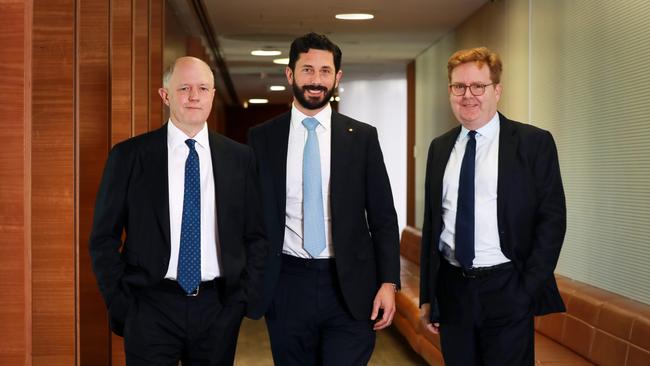
Ryan Stokes calls it “the owner’s mindset”.
The media and industrial company scion believes it is the secret to the success of the billionaire Stokes family’s flagship public firm, Seven Group Holdings.
In a private address to a dinner in Sydney on Monday evening to mark the start of the 25th annual Credit Suisse Asian Investment Conference, Mr Stokes implored the 100 attendees – which included rich listers and other A-list clients of the Swiss investment bank – to consider “the owner’s mindset” as a benchmark for stocks delivering outperformance.
“You take the dollar personally. You think about that from an expense perspective and from an investment perspective, and really try to instil that value through the group. How do you, as an owner, think about that? Not from a sense of empowerment to do what you want, but what is a responsible thing to drive value for that dollar,” Mr Stokes said in an interview with The Australian on the sidelines of the event.
“That’s something we think permeates through our group. But it’s also empowering the right people to lead and driving the organisation to success.”
The now 46-year-old has been putting his stamp on Seven ever since taking over as CEO in July 2015, overseeing a refocus on its WesTrac mining services franchises in NSW and Western Australia and government infrastructure investment through its Coates Hire division, as well as gas development through its stake in Beach Energy.
The group also holds a 70 per cent stake in building products giant Boral following a 12-month campaign to wrest control which culminated last year, and Mr Stokes is now installed as the Boral chairman.
Now let’s improve China relations: Seven’s Stokes
Seven, which is 65 per cent owned by the Stokes family’s Australian Capital Equity investment group, also has a controlling shareholding in Seven West Media, the owner of the Seven TV network and West Australian Newspapers.
Seven has delivered a total shareholder return of more than 200 per cent over the past five years, while over the same period earnings per share have grown an average of 26 per cent per year.
Mr Stokes, the son of billionaire media baron Kerry Stokes, said there were several key attributes to the “owner’s mindset” that his family has brought to Seven, in addition to its “skin in the game”.
They included a passion to “simplify and decomplexify” and drive leadership by empowering executives with accountability.
He also spoke of employing “doers over delegators”, having “crystal clarity of value drivers” and a passion for driving efficiencies and promoting “action over analysis paralysis”.
Most importantly, Mr Stokes said the “owner’s mindset” meant that for him running Seven was a “personal” passion.
“You have to love it and in that love comes a real commitment to it. That emotional connection is a bit contagious within organisations. Leaders who have that belief, it can transpire through others as well,” he said. A study by Credit Suisse looking at the world’s 1000 largest global family firms has found that they outperformed non-family-owned businesses by 370 basis points annually, on average, since 2006.
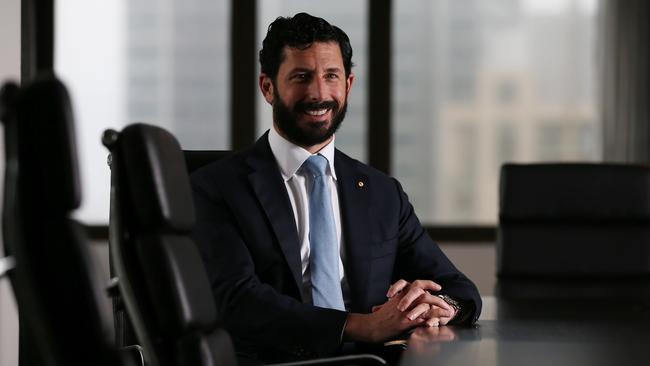
Specifically the cashflow return on investment of those family firms outperformed by 200 basis points each year over the same period.
The gains were particularly strong in Europe and Asia.
Another recent study by Bain & Co found companies that maintained a founder’s mentality were four times more likely to be a top quartile performer and delivered 3.1 times better TSR than their competitors over 15 years.
About 30 per cent of the S&P 500 in America is made up of founder or family-owned firms. However, there are fewer on the ASX. In addition to Seven, listed founder-led companies in Australia include the Wilson family’s Reece Group, WiseTech Global, Resmed and Harvey Norman and the Raphael Geminder-backed Pact Group.
A number of leading fund managers, including investment legend Peter Cooper’s Cooper Investors, have set up specific family and founder funds in recent years to back local and international firms with “the owner’s mindset”.
Shane Galligan, Credit Suisse senior client partner and adviser to a number of the wealthiest families in Australia, said entrepreneurial company founders often could “see things that others can’t”.
“They can also act more quickly than others. We believe that’s what separates entrepreneurial companies, as well as the cultural aspects in executing well,” he said.
“It’s that ability to see something early. We see it with entrepreneur-led companies in Australia. They’ve got that vision for change, they drive that vision through their businesses. Not to say that corporates that aren’t founder-led don’t, but entrepreneur-led companies are typically more nimble.”
Mr Galligan and Credit Suisse have been advising Mr Stokes, ACE and Seven in Australia for over a decade.
The Swiss investment bank’s Australian chief executive Richard Gibb also believes founder-led companies are more pragmatic in how they operate.
“There is a bit more of a can-do kind of attitude. If there are problems, they seem to be able to cut through them and resolve them more quickly. They don’t take no for an answer, more so than non-founder led corporates,” he said.
However, many investors still remain wary of the so-called founder’s discount: the price you pay – in the form of the odd related-party transaction, an excessive dividend or an executive appointment made on bloodlines rather than merit – for investing in companies with big founding or family shareholders.
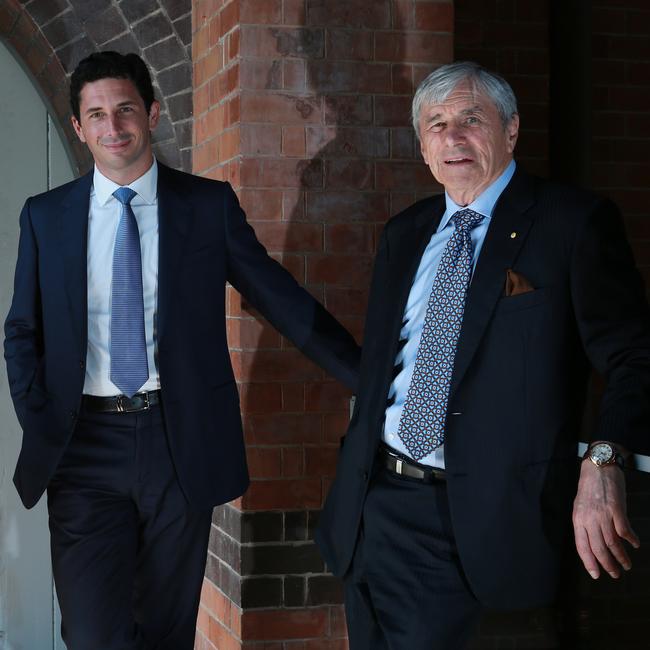
The disappointing recent performance of the Hamish Douglass-led Magellan Financial Group has also highlighted the dangers of so-called “key-man risk” in a founder-led company.
Mr Douglass this week stepped down from the Magellan board after taking leave for health reasons.
The multiple inquiries into the governance failures at Crown Resorts have also shown the undue influence that can be exercised over a listed firm by a dominant shareholder.
But Mr Galligan was adamant “good governance is good governance and will happen whether it’s a founder-led company or not”.
“From what we’ve seen, founder-led companies need strong governance, a strong executive team, and a strong board that is able to stand up to the major shareholder of a company or to an over-exuberant CEO-entrepreneur who is often going at 1000 miles an hour.
“But there is not a great deal of difference between founder and non-founder-led firms in terms of governance,” he said.
Mr Stokes highlighted Seven’s pursuit of Boral as an example of the group’s patient investing approach.
The opportunity to pursue Boral had been under review by Seven since 2019 as a compelling opportunity to increase its infrastructure and construction exposure.
Seven had a stake of less than 20 per cent in the embattled building group in September 2020 but gradually increased its holding via creep provisions in the Corporations Law, before accelerating its efforts in early 2021 and mounting an eventual takeover.
It was also a classic Stokes family play – to stalk its prey and agitate before securing the prize for less than a full price.
Mr Stokes also believed Seven’s investment in Beach Energy and its merger several years ago with rival DrillSearch – which was driven by Seven as an investor in both firms – highlighted its patience to hold energy assets through unpopular periods and when prices were not favourable.
“By nature having an ownership mentality that can stretch can drive results for a longer period of time and creates an opportunity to take a position where it might not be popular, but where there’s a belief,” he said.
“You can have a viewpoint where something will go and have the ability to have the conviction to see that through. If that’s right, you’re going to see significant value created.”
Last August, three weeks before celebrating his 81st birthday, Kerry Stokes revealed he felt confident enough in the talents of his eldest son and his board to cease chairing Seven.
But Mr Stokes stressed there had been no decrease in the Stokes family’s financial exposure to the success of Seven and that his father remained involved, albeit in a different way as a consultant.
Kerry Stokes remains chair of ACE and Seven West Media.
He claimed his father’s decision to exit the board was a sign of confidence in the calibre of the Seven’s independent directors and management, and where the company and its diversified assets were positioned.
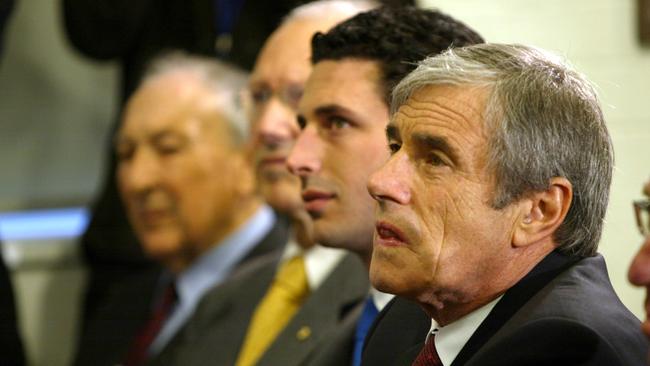
But he was wary of making predictions about whether he wanted his own children to follow him in the business as he did his father.
“From my perspective, I enjoy what I do and the opportunities that I have, and how I’m involved across businesses. I get huge satisfaction out of that.
“That’s what draws me personally. Seeing people work hard, solve customer problems and create value in that process.
“That’s what I get satisfaction from,” Mr Stokes said.
“We will see how the group evolves. One thing the transition of my father out of the business highlights is that the group has a depth and breadth and knows how the future will go.
“But I’m not necessarily setting up any expectation on my kids to do anything.”
Mr Stokes was also agnostic about the Stokes name needing to remain a part of Seven and stressed he would only remain in the CEO role as long as the company performed, irrespective of his surname.
“You have immense pride in what the group is doing and in that context, you like to have that involvement. But I don’t know about it (the Stokes name) being important, or thinking that far down the track as to what might happen in that context.
“I’ve been very fortunate to have had the opportunity to be involved. But I wouldn’t like to think that just because I am the son-of, I’m sitting in the role running it. Given the chance, the market would tell me otherwise.
“If that’s not right for shareholders, then I shouldn’t be doing it. I’m mindful that if there’s someone better in that capacity, then they deserve the opportunity to be in charge and lead it.
“That’s what I think is important for longevity through generations and different contexts.
“Not just installing people because of birthright. That is a broad view my father has around that process as well.”


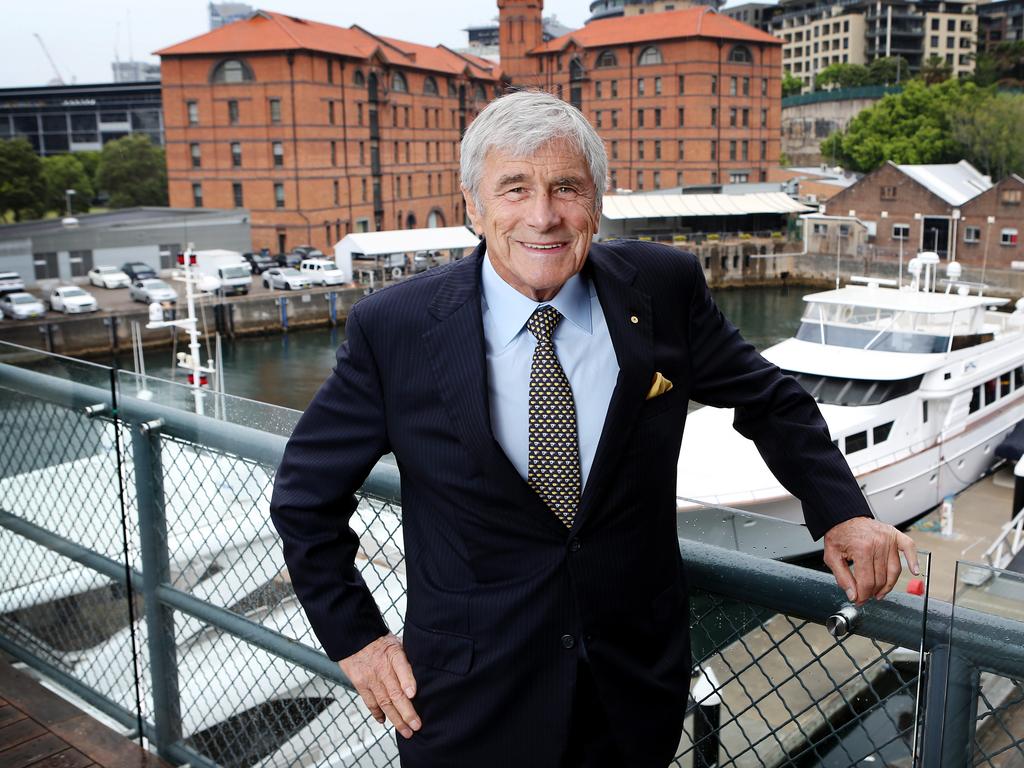

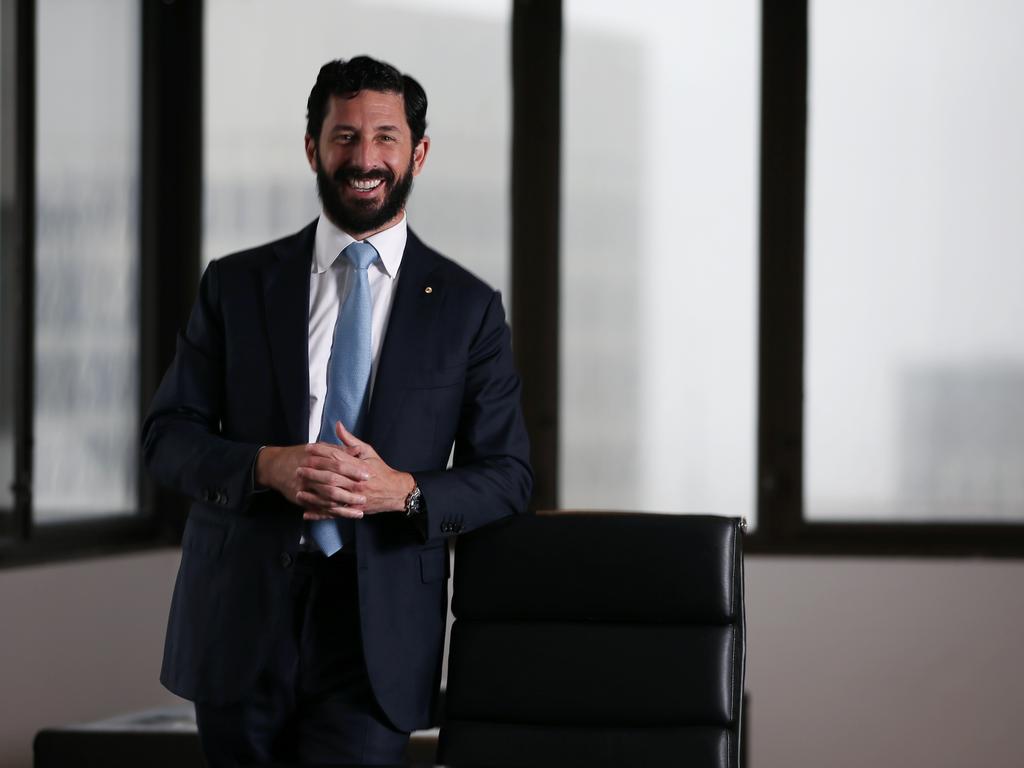



To join the conversation, please log in. Don't have an account? Register
Join the conversation, you are commenting as Logout